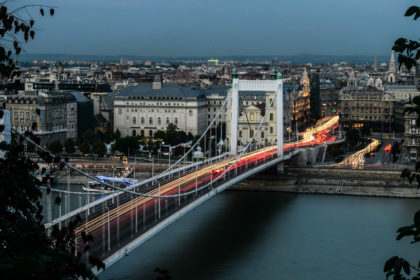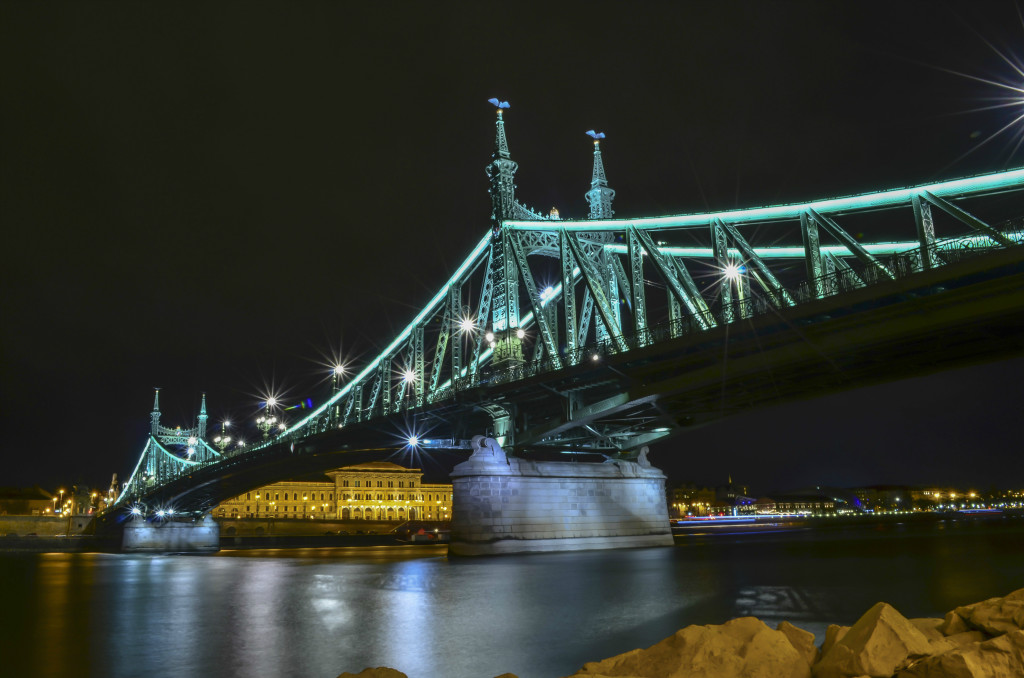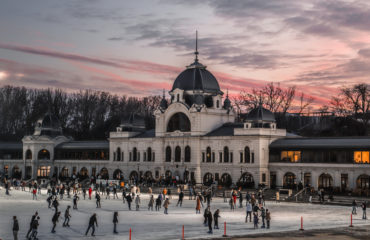10 things to know before you travel to Budapest

A popular article about Budapest from nomadandcamera.com
“I recently spent a week in Hungary and thought I’d help my fellow travelers out who plan on visiting Budapest. First of all, I don’t know why Budapest isn’t included in more “Eurotrip” conversations. I’m already putting it on my list of favorite European cities. Very underrated, very safe, full of partying, and paprika is in everything. What else can you ask for? Now that you’re all hyped for Budapest, here are ten things I learned that you should know before you go.” nomadandcamera.com
1. Inflated money. Hungary is part of the EU but not yet on the Euro. This means you’ll need to use Hungarian Forint which is very inflated. These are very big bills! 300 Ft is equals just over $1 USD. But the smallest bill is the 500 mark. This means don’t give cashiers at grocery stores more than 10,000 Ft. They may not be able to break it.
My biggest tip is COUNT THE ZEROS. Especially when receiving money back from a bartender. It’s new currency to you and if you are slightly buzzed the 2,000 and 20,000 can look very similar. I witnessed this trick firsthand at a bar where a bartender didn’t give a twenty-something tourist back the correct change figuring he wouldn’t notice. However, he did notice. He called the bartender out and was given the correct amount promptly. Not saying this happens everywhere, but be especially cautious at bars. And in taxis – if possible, call or prearrange a taxi rather than flagging one down. Drivers prey on tourists’ ignorance.

2. ATMs. On a money related note, ATMs are easily accessible throughout the city. Be sure to use IBLA for the best currency exchange. Avoid EURONET. They charge a big service fee for using their ATM. How much Forint should you carry in your wallet? No more than 10,000 Ft.
3. Is Budapest safe? Surprisingly, it’s very safe. Get old Eastern European stereotypes out of your head! I spoke with a local who lives in the Jewish Quarters (basically downtown Budapest) with her sister. She said she gets home in the early hours of the morning from work and walks about a mile home. She said she’s never had a problem. She told me if you don’t see police where you are walking it’s because it’s a safe neighborhood. And if you do see police, then you should also feel safe because they are the police!
4. What language do Hungarians speak? Hungarians speak Magyar which is ranked as one of the toughest languages to learn. However most people that you will interact with, especially in touristy areas will speak English and/or German. (And possibly Russian depending on their age.) Here are a couple basics: Hello is szia which sounds like see ya. Thank you is köszönöm which has too many o’s with dots over them!
5. Public transportation. It’s very easy to get around the city. I’ll admit some of the modes of transportation look a bit dated, especially the trams, but the trains, buses, and trams are all easily accessible. The #4 / 6 trams are the best ones to stay near. Their route runs a half circle around the eastern part of the city and #6 runs 24/7. But DO validate your ticket. Budapest public transport runs on the honor system for validating tickets, however there are frequent spot checks by security officers and you don’t want to get busted by a Hungarian officer who won’t speak much English. Fines will vary. Note there are NO FREE TRANSFERS. You need a new ticket if you are going from the train to the bus or tram. In Budapest you are better off getting a 24 ticket or a multi day pass if it’s available.
6. Amenities. The water is safe to drink. Most Airbnbs, hostels, and cafes will not have air conditioning, however most hotels will. The plumbing is good so use all the toilet paper that you need! All my accommodations had elevators including the hostels and Airbnb which were in older buildings.
7. Drinking culture in Hungary. Budapest has a killer night life scene and is very affordable compared to other major European cities. Visiting the ruin pubs are a must! The most popular one being Szimpla Kert. They are basically abandoned buildings in the Jewish quarters converted into open-air bars. Different ruin pubs have different themes. The legal drinking age in Hungary is 18. Yes, you can drink as you walk down the street. It’s legal and is always a classy look… As someone who likes both beer and wine, the Hungarian wine is better than the beer. BUT the domestic beer, Dreher, is very cheap. Like $1 USD cheap. At nice places it’s about $2.50 USD. Also, if you are visiting during the summer, a popular traditional Hungarian drink is fröccs – wine mixed with soda water. Very refreshing!

Photo by Balazs Vasareczki
8. Grocery shopping. Many grocery stores are closed on Sunday. Make sure you get what you need on Friday or Saturday. For more on what’s closed on Sunday visit WeLoveBudapest.
9. Post communism. If locals look unhappy, particularly older citizens, it doesn’t necessarily mean they are. They were trained to look that way during the communist era so USSR officers patrolling the streets didn’t think twice. Looking happy or even content made you look suspicious in those days. Remember, communism only ended in Hungary in 1989. Obviously, don’t talk politics, but DO take the free communist walking tour in Budapest. Not many sights but fantastic insight on communism in Hungary. As far as what outside country dominates the Hungarian media, it’s still Russia. Take the tour and you’ll understand why.
10. How to pronounce “Budapest”. Maybe the most important tip. “Pest” sounds like “Pescht”, not “Pest”, like an insect or something annoying. Actually, Buda and Pest used to be two separate cities divided by the Danube River. Fun fact: They weren’t united as one city until 1873.
Source: nomadandcamera.com








